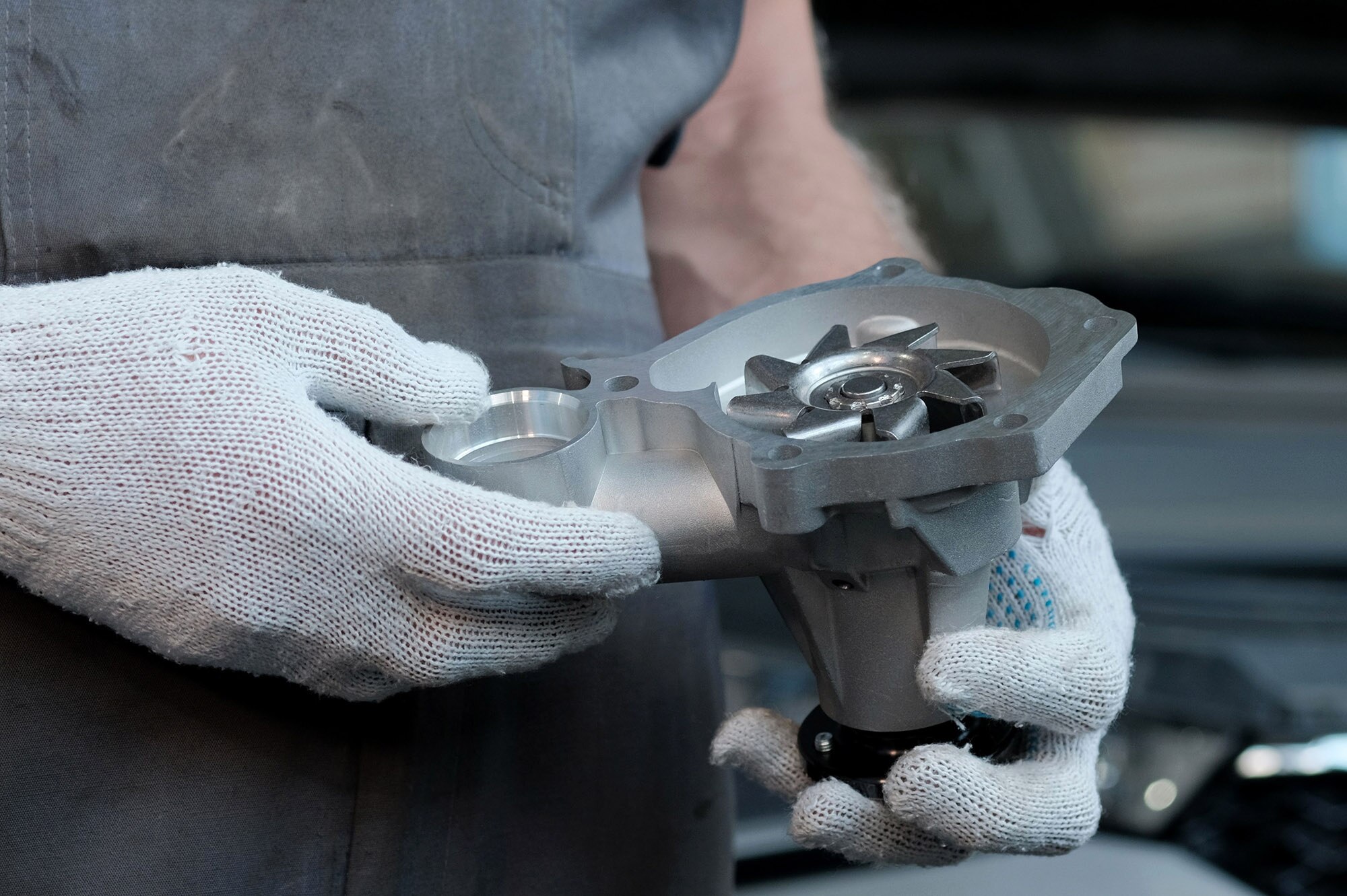Everything You Need to Know About Water Pumps
Keep your engine cool and safe with these water pump tips.
 Shutterstock
Shutterstock
Your vehicle's water pump is a crucial part of its engine, but it's often overlooked and may not be as well known as other vehicle components. This is likely in part because water pumps typically last a long time. Here's what you need to know about this stalwart engine component, from maintenance to repairs.
What a Water Pump Does
Most cars' cooling systems rely on the constant circulation of coolant — water mixed with antifreeze — through the water jackets in the engine block and then back through the radiator. There, the heat exchange with the air lowers the temperature of the fluid so it can go through the cycle once again. Your vehicle's water pump is responsible for keeping the coolant constantly moving throughout this entire process.
How a Water Pump Works
Most water pumps use a simple design in which an impeller (a fanlike set of blades) is attached to the engine, often by a belt, so that it spins when the motor is running. The impeller pulls coolant through an inlet, using centrifugal force to push the fluid through the closed cooling system.
Why Water Pumps Can Fail
A water pump might break in a number of ways. As with any mechanism designed to spin continually, its bearings can wear down — or suffer stress due to a belt that is too tight — which can eventually lead to the pump seizing or being unable to rotate at the required rate.
The water pump is immersed in the cooling system and relies on seals and gaskets to prevent fluid leaks. These can dry out or become damaged, causing drips and sprays and drawing air into the cooling system. Broken or bent impeller blades — particularly those made out of plastic — can lead to a pump failure, and the impeller itself can separate from the impeller shaft and stop spinning completely. Damage from a corroded cooling system can also occur.
Finally, if the belt that drives the water pump snaps, the pump will stop working.
When to Replace a Water Pump
Water pumps have a finite service life. Depending on the model, you can usually count on somewhere between 60,000 and 90,000 miles of service before it's time to swap in a new pump. Some modern vehicles feature designs rated to 100,000 miles. A water pump may still function outside of those limits, but at that point, you run a higher risk of sudden failure.
Symptoms of a bad water pump can include coolant puddles underneath the vehicle, as well as the engine overheating. More specific clues that you are dealing with a bad water pump include excess vibrations or noises from the pump itself, which can indicate that its bearings are bad or that the pulley responsible for driving the pump is on its way out.
Other Maintenance Tied to Water Pump Replacement
An engine's timing belt has roughly the same service life as its water pump. On some designs, it's also responsible for driving the water pump. Because of this, if the pump is showing signs of failure, it's reasonable to replace the timing belt at the same time so that they have the same level of wear.
Another compelling reason for replacing both together can be the cost of labor. If your vehicle's water pump is behind, or driven by, the timing belt components, not changing both at the same time runs the risk of doubling your repair costs for replacing them separately.
Written by humans.
Edited by humans.
 Benjamin Hunting
Benjamin HuntingBenjamin Hunting is a writer and podcast host who contributes to a number of newspapers, automotive magazines, and online publications. More than a decade into his career, he enjoys keeping the shiny side up during track days and always has one too many classic vehicle projects partially disassembled in his garage at any given time. Remember, if it's not leaking, it's probably empty.
Related articles
View more related articles